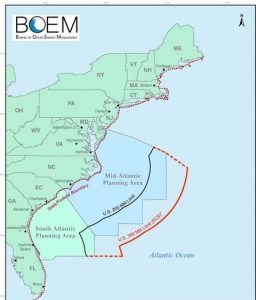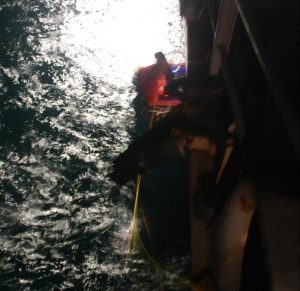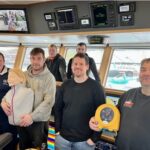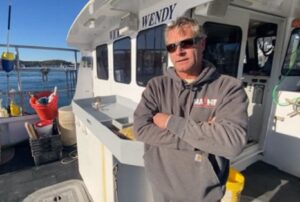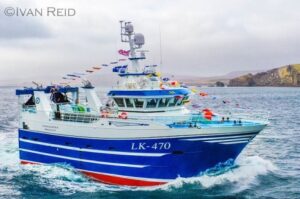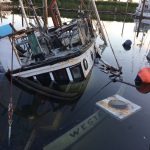Category Archives: South Atlantic

Portuguese fishermen helped launch Georgia shrimp industry
Wild Georgia Shrimp had it pretty good around here until the likes of John Martin and Joe Santos arrived on our shores following World War I. These two men were among the early wave of Portuguese refugees who crossed the Atlantic Ocean early in the 20th Century, only to chart a course right back into the sea to reap its bounty. Suddenly, our local shrimp began showing up in large numbers on menus and dinner tables from here to New York City. By the 1930s, the public’s newfound taste for these crustaceans had filled the docks along Brunswick’s East River with shrimp boats, all of them captained and crewed by stout-hearted Old World mariners. Those vessels would include the seven trawlers Joe Santos and partner John Mendes owned jointly in the Union Shrimp Company. >click to read<12:49
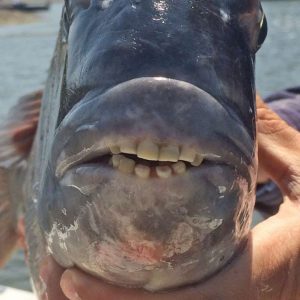
Mysterious South Carolina fish with humanlike teeth stumps the internet
The South Carolina Department of Natural Resources on Wednesday asked its social media followers to identify a fish with “humanlike incisors.” he department posted a riddle to its Facebook page, which reads: “You’ll need a saltwater fishing license to catch me! I like to hang out near rocks, jetties, reefs, and even bridges … The coolest thing about me? I have human-like incisors and molars to help crush my food. I like shrimp and oysters just like you do!” >click to read<11:19

Zinke Tells Panel Definitive Word on Offshore Drilling Plan Months Away
Interior Secretary Ryan Zinke on Thursday reiterated that no new oil and gas exploration will be allowed off the Florida coast, but said the Trump administration’s plans for other offshore areas won’t be announced until the fall. Zinke appeared before the Senate Appropriations subcommittee on Thursday to discuss a wide range of budgetary issues. But his talk with lawmakers hit a rough patch when Sen. Chris Van Hollen, D-Md., grilled him over the Interior Department’s plans to open up waters around the U.S. for oil exploration. >click to read<20:13

Coast Guard medevacs 57-year-old fisherman 97 miles east of St. Catherines Sound
The Coast Guard medevaced a 57-year-old man Friday from a fishing vessel 97 miles east of St. Catherines Sound. Watchstanders at the Coast Guard’s Sector Charleston Command Center received notification from a crewmember aboard the 72-foot fishing vessel Lady Helena stating a crewmember was suffering from chest pains. A Coast Guard MH-65 Dolphin helicopter crew from Air Station Savannah arrived on scene at 9:12 a.m., hoisted the crewmember and transported him back to the air station at 9:46 a.m. where EMS was waiting. -USCG-23:12

Dan Webster’s Sustainable Shark and Fisheries Trade Act Championed in Senate by Marco Rubio, Lisa Murkowski
At the end of last week, U.S. Sen. Marco Rubio, R-Fla., and U.S. Sen. Lisa Murkowski, R-Alaska, announced they would champion in the Senate U.S. Rep. Dan Webster’s, R-Fla., proposal for the U.S. Commerce Department to increase regulation on the international shark trade. Last month, Webster, who is the vice chairman on the U.S. House Water Power and Oceans Subcommittee, unveiled the “Sustainable Shark and Fisheries Trade Act” which modifies the High Seas Driftnet Fishing Moratorium Protection Act. The proposal has support from both sides of the aisle,,, >click to read<09:50
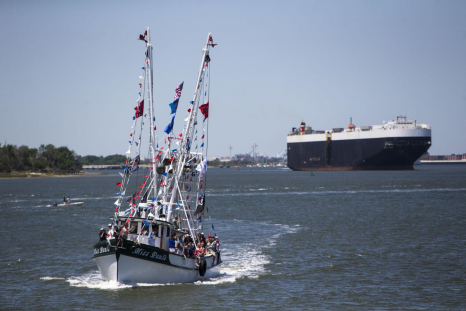
Cold waters, few shrimp means delay in South Carolina season opening
Two years ago, Greg Herald and two partners decided to try to beat the odds. They bought a shrimp boat and began working from Shem Creek. They wanted to become part of the traditional Lowcountry fleet that is struggling just to hang on. Today, the partnership has liquidated. The veteran commercial fisherman among them, Vince Shavender, has gone home to North Carolina. Herald plans to continue selling shrimp from a roadside stand — local catch if he can get it. But last year he traveled as far as North Carolina and Georgia to find enough to sell. The third partner, who bought out the boat, didn’t return phone messages asking if he is still in the shrimping business. >click to read<10:32
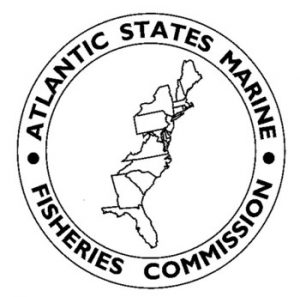
ASMFC Spring Meeting in Arlington, VA- April 30 – May 3, 2018
The Atlantic States Marine Fisheries Commission’s Spring Meeting will be April 30 – May 3, 2018 at The Westin Crystal City (Telephone: 703.486.1111), located at 1800 South Eads Street, Arlington, VA. Meeting materials are available on the Commission website at http://www.asmfc.org/home/2018-spring-meeting. Supplemental materials will be posted to the website on Wednesday, April 25, 2018. The meeting will be broadcast live on the internet, >click to listen<15:08
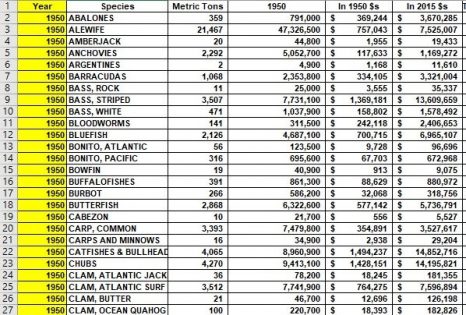
Commercial Fishing in the U.S. Exclusive Economic Zone – What was being caught and where back to 1950
What is the status of commercial fishing in the U.S. Exclusive Economic Zone, the waters from 3 to 200 miles off our coastline? Generally speaking – something that the “bureaucrats in charge” have developed a great deal of facility in doing – it’s pretty good. Since the National Marine Fisheries Service started getting serious about tracking commercial landings (or at making those landings readily accessible) in 1950, the total weight of our domestic landings has increased from 4.9 billion to 9.8 billion pounds. The value of those landings, when corrected for inflation, has increased from $3.3 billion to $5.2 billion, almost as good. Nils E. Stolpe/FishNet USA >click to read<17:03
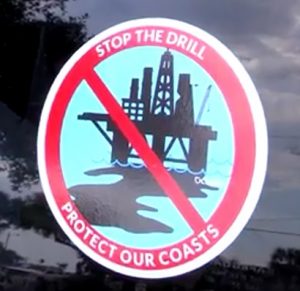
East Coast offshore drilling just got dumber
Seismic testing for potential offshore oil or gas — long opposed by Beaufort Mayor Billy Keyserling and City Council — just got dumber. Frank Knapp Jr., president and CEO of the SC Small Business Chamber of Commerce, has been bird-dogging opposition to offshore drilling and seismic testing. “Government documents and firsthand accounts of munitions and radioactive waste being dumped off the Atlantic Coast from Massachusetts to Florida came to our attention only recently,” Knapp said. On Friday, Knapp sent out a news release with this warning: >click to read<16:26
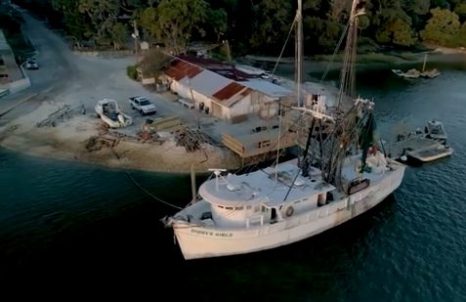
Bluffton has the last hand-shucking oyster house in SC; owner wants to ‘keep it alive’
A new video shows viewers a Lowcountry maritime tradition that hasn’t changed in more than a century. The video, with sweeping views from high above the May River, puts a spotlight on traditional oyster farming with the Bluffton Oyster Company, reported to be the last hand-shucking oyster house in South Carolina.”Basically what we’re doing now is the exact same methods that were done back in the early 1900s when there were 25 or 30 almost identical places doing the same thing,” the business’ owner Larry Toomer, also Bluffton’s mayor pro tempore, says. Watch the video >click to read<17:23
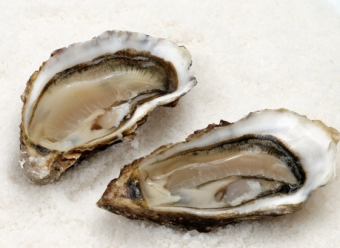
It’s getting harder to reel in a living on the SC coast
Pete Kornack launched his oyster boat into “white knuckle” thick fog on a recent morning and came back with a good harvest, some 16 bushels. The hoist squeaked almost musically pulling the bags of oysters from the boat to the dock. But it wasn’t like the days when Kornack, 50, was young. Crews then would bring back 90 bushels, sometimes shoveling them into the boat. Today, commercial shellfish harvesters like Kornack often have to supplement the living they love by finding other jobs. >click to read<15:54
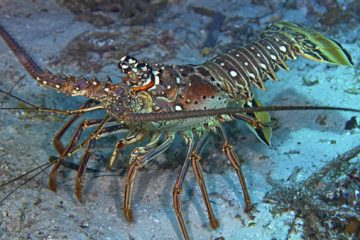
The Business of Lobster
With one of the fastest growing economies, and an exploding middle class that extends onto the mainland, the Chinese have developed a taste for the better things in life – and Florida lobster is surely one of them. For the lobster, this was the culmination of a 9,000 mile journey – a journey that in recent years has transformed the commercial fishing industry in Florida. Before the Chinese started buying their lobsters, the fishermen of the Florida Keys were getting just $3 a pound for their catch. Boat captains from Key West to Miami were struggling to survive. >click to read< 12:24
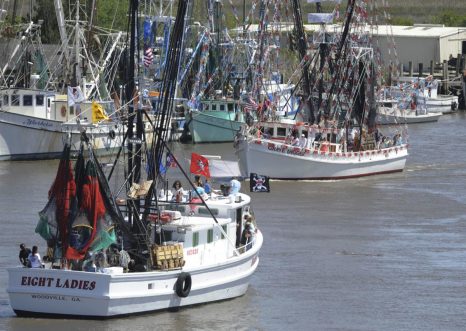
Generations to gather for 50th Darien Blessing of the Fleet
Fred Todd was 10 in 1973 when he went to North Carolina with his father, Bobby Todd, to pick up a new shrimp boat, the Sundown. Sunday afternoon, he’ll be aboard the Sundown as grand marshal for Darien’s 50th annual Blessing of the Fleet when the 60-foot boat sails up the Darien River to the U.S. Highway 17 bridge for a sprinkling of holy water and a benediction for full nets and safe passages. He got aboard the Sundown as a worker in 1981 after finishing school. The Sundown will be one of at least 18 commercial fishing boats in the blessing,,, >click to read<01:30

Remember when we lost that hydrogen bomb?
With all the talk of late regarding nuclear bombs from North Korea and Russia and such, I was reminded this week of something I’d heard when I was a kid that you might not know a thing about.
But maybe you should.,, On February 5 of that year a 7,000-pound hydrogen bomb was lost off the Georgia coast. ,,, In this month’s Garden & Gun magazine, a new twist to the lost bomb story arises. It seems a shrimper named Bubba Smith shared a story to his closest friends before he passed away in 2006 that bears retelling. >click to read< 10:07

Sustainable Shark Fisheries and Trade Act of 2018 – bill nets solutions for overfishing
A new bipartisan bill introduced in U.S. Congress this month encourages a science-based approach to significantly reduce the overfishing and unsustainable trade of sharks, rays and skates around the world and prevent shark finning. The Sustainable Shark Fisheries and Trade Act of 2018 was introduced in the U.S. House of Representatives by Rep. Daniel Webster, R-FL, and Rep. Ted Lieu, D-CA, along with co-sponsors Rep. Bill Posey, R-FL, Rep. William Lacy Clay, D-MO, and Rep. Walter Jones, R-NC., >click to read<09:39
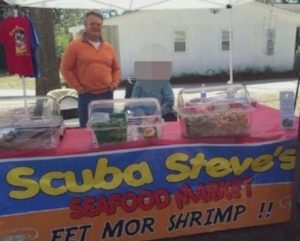
Prominent Shrimper found guilty of federal charges
A Tybee Island shrimper and member of a prominent local family was convicted by a federal jury on multiple counts of false statements, mail fraud and money laundering. Michael Brian Anderson, who’s family owns of Scuba Steve’s Seafood on Highway 80, submitted multiple false claims saying he was losing thousands of dollars in his shrimping business. Investigators say Anderson wanted federal money to deal with his losses and cheated the government out of over $800,000. According to the U.S. Department of Justice (DOJ), Anderson claimed to Customs & Border Protection his shrimping business expenses for 2005 to 2007 were more than $24 million. >click to read<11:56
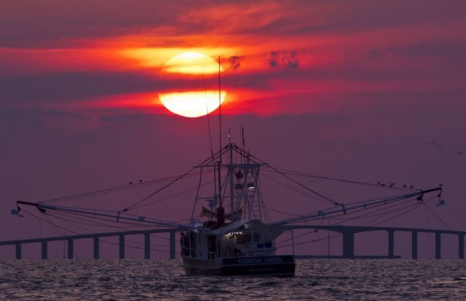
US Shrimp business making slow progress
Despite low dockside prices and other setbacks, local shrimping families say they have hope for this year and those to come, pointing to signs of recovery that are small, but nonetheless seen as positives. The industry got a big shot in the arm earlier this month when President Donald Trump signed into law an appropriations bill that includes money to monitor shrimp coming from other countries into the US, to verify that the companies involved are acting in accordance with US trade laws. >click to read<16:19

US Commerce Secretary Wilbur Ross questions safety of seafood imports
U.S. Commerce Secretary Wilbur Ross addressed U.S. fisheries regulations and his concern about the quality of seafood imports with the U.S. Congress on Tuesday, 20 March, and he said he’s looking for NOAA Fisheries officials to work harder to reduce the country’s seafood trade deficit.,, “It’s one of my pet peeves,” Ross said, when asked by U.S. Rep. Steven Palazzo (R-Mississippi) what he planned to do to reduce the country’s seafood trade deficit. “I hate the idea that with all the water surrounding us and all the water inland that we have a trade deficit in fish. >click to read<13:05
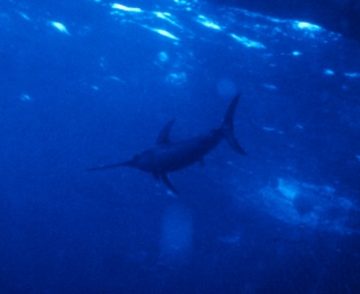
Uninformed vs. Science: The story of swordfish in the Northwest Atlantic is complex and subject to many versions of revisionist histories.
Every once in a while you read something that is so wrong, it sticks with you. A recent statement by the American Sportfish Association, (ASA), published in the Fishing Wire, met and exceeded the mark of just plain wrong. And to compound the affront, several marginalized groups threw in their support for good measure. I know better than to bark at the moon but here goes,,,Uninformed vs. Science. By Edward Gaw >click to read< 14:53
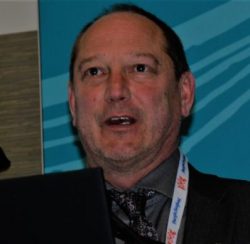
US fisheries’ leader Oliver asserts ‘business-minded’ stance
The US’ top regulatory authority on fishing used his first appearance ever at a Seafood Expo North America (SENA) conference on Sunday to describe how he was reshaping the mission at the National Oceanic and Atmospheric Administration (NOAA) to create more of a pro-business environment. Commercial fishermen largely applauded the Donald Trump administration’s selection of Chris Oliver to serve as NOAA’s assistant administrator of fisheries in June 2017. >click to read< 09:41
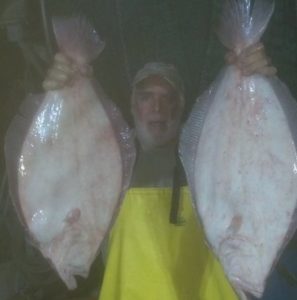
The US Senate needs to support the AMERICAN FISHERIES ADVISORY COMMITTEE ACT, S1322
To all, My name is Joel Hovanesian and I am a commercial fisherman who resides in RI but have held a CT. licence for some 30 years. I have a small inshore vessel now after selling my offshore boat in 2010. I have been dealing with Mike Gambardella since he started in the Borough. I want to bring an issue forward and give insight to some thoughts. I have been an outspoken critic of the way we have been managing our fisheries here in New England and other places on the Eastern Seaboard. We all recognize the fact that regulations need to be in place for obvious reasons, however as often happens when the Federal Government gets involved with things, they have a tendency to take on a life of their own. >click to read<13:36

U.S. States Slow Trump’s Offshore Drilling Expansion Plan
The Trump administration’s plan to broadly expand drilling in U.S. offshore waters is moving slowly due to opposition from coastal states and indifference from oil companies that have turned their focus to other opportunities. The administration hopes encouraging U.S. energy development outside of shale oilfields will further its goal of “energy dominance.” But existing Obama administration lease rules remain in place through 2022 unless the new rules gain approval. The Department of the Interior this year proposed opening vast new acreage in the U.S. outer continental shelf to drilling. >click to read< 08:56
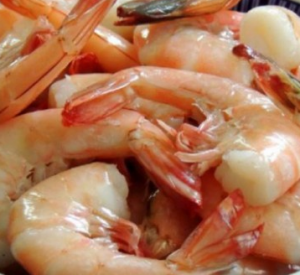
Ga. Coast’s fishing families featured in free Green Screen Film Fest
It is the picturesque embodiment of the good life in this corner of the state, but some folks still look to Georgia’s coastal waters for their very livelihoods. The stories of these stalwart folks who steadfastly ply those waters to reap its bountiful seafood harvest are the focus of “Shifting Baselines,” the featured documentary in the free Green Screen Film Festival from 10:30 a.m. to 2:30 p.m. this Saturday at the Historic Ritz Theater in downtown Brunswick. The one-hour film chronicles the likes of longtime Darien commercial fisherman Charlie Phillips, as well as the enduring legacy of Georgia fishing dynasties such as the Timmons and Gale families. >click to read< 09:32
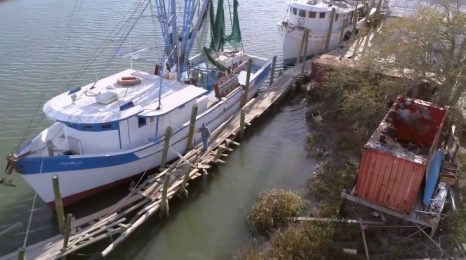
Beaufort community helped save this seafood institution.
It’s officially a community barn-raising. An effort to raise money and rebuild a Beaufort County seafood institution spread in recent weeks with the help of volunteers and social media. Now the first sections of Gay Fish Co.’s storm-ravaged docks can be rebuilt in time for shrimp season. Organizers expect work to begin the first week of April and finish by June. “Everybody is convinced now it’s going to happen,” said dock builder Richard Knieriem, who is volunteering to oversee the construction. >click to read< 09:07
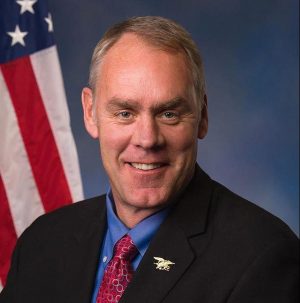
Zinke promises to ‘partner’ with oil industry, as offshore drilling opponents push back
Opponents of the Trump administration’s offshore drilling proposals pressed their case as a first 60-day public comment period drew to a close this week. Meanwhile Interior Secretary Ryan Zinke, speaking at a Houston energy industry conference Tuesday, talked up the offshore plan and other administration moves to streamline drilling and infrastructure permits. The Department of Interior, Zinke said, “should be in the business of being a partner” with industry. >click to read<10:11
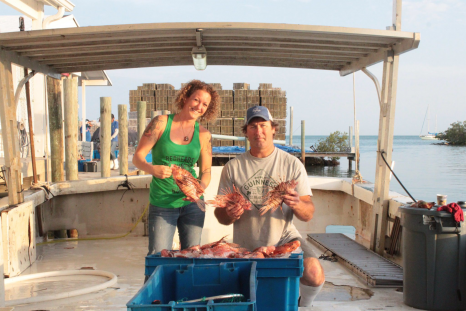
Keys fishermen talk about traps to stop the lionfish invasion
Lionfish are the scourge of the Florida Keys seas. Since the early 2000s, they’ve been invading local waters, devouring everything in sight.,,, It’s legal to net them, even spear them where it’s allowed.,, But the simplest, most effective method for removing lionfish is to catch them in existing lobster and stone crab traps.,, The Florida Keys Commercial Fishermen’s Association is tackling the lionfish invasion from another angle — an exempted fishing permit issued by the National Oceanic and Atmospheric Administration for a pilot project. >click to read< 18:53

Gloucester again at center of drilling fight, along with everyone from every coast.
In the late-1970s, an unlikely alliance between environmentalists and commercial fishermen in this storied seaport helped block plans to open up Georges Bank to oil exploration — an effort that ultimately led to a federal moratorium on offshore drilling. Georges Bank, a shallow and turbulent fish spawning ground southeast of Cape Ann and 100 miles east of Cape Cod, has been fished for more than 350 years.,,, In Gloucester, those who fought similar efforts a generation ago are confident the city can again win a David vs. Goliath battle with energy companies. >click to read< The non-stop articles about the opposition to drilling is overwhelming. No one wants it. Wind farms are the real threat. 14:05







